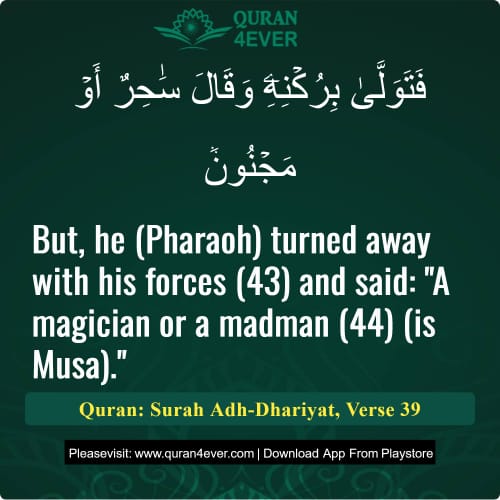
Transliteration:( Fatawalla biruknihee wa qaala saahirun aw majnoon )
38. And in Musa [41] also, when We sent him to the Pharaoh with clear authority [42].
The story of Prophet Musa (Peace be upon him) provides a significant lesson, particularly in how opposition to Prophets led to the downfall of mighty nations.
The clear authority given to Prophet Musa refers to the miracles he performed, such as his staff turning into a serpent and his glowing hand, which were undeniable signs of divine power.
The verse stresses that Musa (Peace be upon him) was sent not only for the Israelites but for all people in Egypt, whether Israelites or Egyptians.
His message and obedience were obligatory for everyone, reflecting the universal nature of the Prophethood and the importance of following Allah’s commands.
The tafsir of Surah Ad-Dhariyat verse 39 by Ibn Kathir is unavailable here.
Please refer to Surah Dhariyat ayat 38 which provides the complete commentary from verse 38 through 46.
(51:39) But Pharaoh turned away, showing arrogance on account of his power, and said (about Moses): “He is either a sorcerer or a madman.”[37]
37. That is, they called him sometimes a sorcerer and sometimes a madman.

For a faster and smoother experience,
install our mobile app now.
Related Ayat(Verses)/Topics